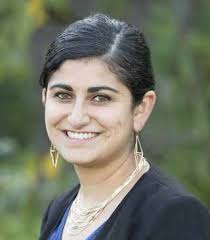Everyday Ayurveda by Dr. Bhaswati Bhattacharya
When spring is in the air, we see beauty blooming everywhere. Romance naturally blossoms as we suddenly find ourselves attracted to beautiful things and beautiful people. The western world is finally discovering that true beauty is more than skin deep. Ayurveda has always emphasized that skin is a reflection of the deeper layers of the body’s tissues, especially the fluids, and of the digestive fire, agni. It emphasizes the importance of inner cleanliness, good nutrition and proper functioning of the digestive agni. When the body is in a state of perfect flow and function, it exudes an energy known as ojas that is alluring, attractive and unforgettable.
In the days before mirrors, people looked into a pond or a still water body to see their reflection. Ayurveda warned not to lean too far into a river, and not look at one’s reflection in a well. It advised that we look at ourselves in sacred, clean reflections in the morning, in a brook or in a pot of water or ghee, after bathing and before prayers.
Ayurveda places emphasis on reflecting inner calm and goodness as part of outer beauty. The 43 muscles of the face can often tell people what is really going on inside. Scientists, such as USCF Psychologist Dr. Paul Ekman, have found seven emotions humans correlate with very clear facial signals made by microchanges in these 43 muscles: surprise, happiness, disgust, contempt, sadness, fear and anger. Research concludes that when a person arranges his/her face into a certain expression, s/he will actually feel the corresponding emotion. Emotions work from the outside inward and also from the inside outward.
When we invoke specific facial movements, they seem to turn on the corresponding physical sensations for particular emotions. People who frown instinctively reflect their constant world-view of discontent. But constant frowning also brews discontent. Different kinds of frowns influence the cause of the disharmony deep within, due to sadness, anger, disgust, or fear. Associated expressions of muscles around the eyes and forehead add to the subtle message of the expression.
Subconsciously, we seek people who smile. We seek those with perfect calm and happiness reflected on a symmetric face, as it actually corresponds to peace inside. Perceptive people sense these micro-expressions in others, and that is why good businessmen will insist on meeting in person for important discussions and signing of important documents.
Instinctively, we judge people based on their facial expressions. When a face is kept neatly, it reflects good inner health. A symmetric face is also considered a reflection of balance and is consistently a scientific element in identifying beauty. Perfectly aligned faces are rare, but they reflect that something right happened, some perfection has remained.
Another reflection of beauty is the observable hygiene of the sense organs on the face. Though we know that excretions are a normal part of eyes, ears, nose, and mouth, somehow we do not want to see substances leaking out from the orifices! When the five senses are clean and functioning optimally, the face is open, harmoniously ready to receive and thus attractive. When we check our reflection in the mirror, we make sure that all of these normal substances have been cleaned away, lest they give a subtle signal about cleanliness we did not intend to deliver.
Dry, cracked lips reflect dryness in the deepest channels of the body and instinctively indicate the person’s lack of sneha, the ability to bond. If we travel back to our time as a fetus in our mother’s womb, our moisture came in through our umbilical cord connected to mother and traveled up to our mouth and down to our anus as our digestive system formed. That connection, though interrupted, still have microchannels in our being. Applying pure ghee to our belly button after morning bath and before bed heals the dry, chapped lips as it remoistens those inner passages.
Keeping your daily routine a priority means good sleep, regular beauty rest as needed, a daily shower and change of clothes. It means keeping your gut clean and adjusting your foods to ensure you empty your bowels daily. It means doing the self work to connect your emotions with your brain, heart, and mind, finding the ways to understand your feelings and why you react as you do, not suppressing them with food, alcohol, or work. Those who invest in themselves reflect their ability to care for others, and that reflects as attractiveness and instinctively as beauty.

The South Asia Times Columnist Dr. Bhaswati Bhattacharya is a Fulbright Specialist 2018‐2023 in Public Health. She is Clinical Asst Professor of Medicine, Weill Cornell Medical College, New York. Her bestselling book Everyday Ayurveda is published by Penguin Random House. [email protected] | www.drbhaswati.com












